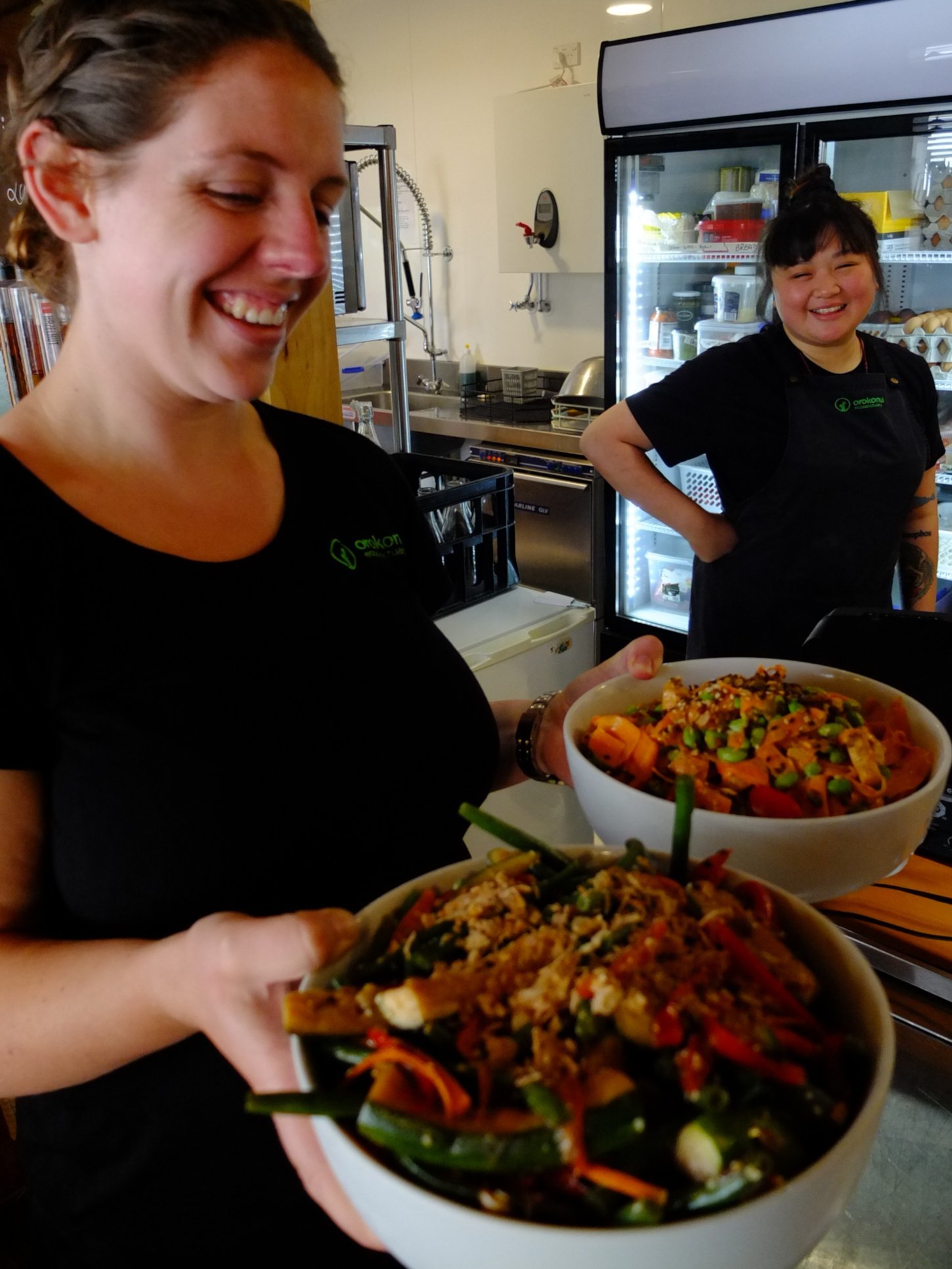
Orokonui Ecosanctuary head chef and cafe manager Louise Evans has made some exciting adaptations at Horopito Cafe. She is putting her master of design enterprise degree from Otago Polytechnic into action, using the cafe as a case study for her thesis on designing more resilient cafe business models.
For Evans, creating a resilient business model means applying design thinking to cafe practices, adopting regenerative principles and human-centred design.
Orokonui general manager Amanda Symon says regeneration, as a mindset, is less about maintaining what is, or restoring something to what it was.
"Rather, it is about creating systems — places, practices, and communities — that have the capacity to evolve towards increasing states of health and vitality over time. There is an obvious synergy here with the wider conservation ethos of the ecosanctuary."
Human-centred design focuses on keeping the user’s perspective (in this case the clients of Horopito Cafe) central to product design. Visitors to Orokonui tend to be environmentally-minded people, with a strong local community focus, so the cafe needs to reflect those values.
Evans examines all elements of the cafe and asks, "Is this the only way to do it or how can we be better?".
This includes things such as working with staff, working with food, waste, energy, marketing and suppliers.
She believes that by supporting local and regional producers, we can sustain local food systems and become more resilient. This will help secure food supply in the event of future shortages in the global supply chain. Buying from local growers and farmers also keeps money in the community and employs local people, helping to maintain the local economy.
Evans sources food producers who use ethical and sustainable farming practices and who share her values around animal welfare. This means she may have to look beyond the local scale, such as getting eggs from Absolute Free Range, in Southland, who make their own grain mix for their happy hens.
Conveniently, wholesale organic salad greens are grown just down the road at the Vern Paddock Project. Milk and dairy for the cafe is sourced from Holy Cow milk, produced and pasteurised only 5km away.
"In addition to ticking all the boxes for values-based farming — encompassing nutritional value, animal welfare, carbon footprint and environmental protection — Holy Cow products also come in reusable glass bottles, so we are not adding to the plastic waste stream".
Reducing waste is a huge part of combating the environmental impact of a cafe. Evans strives for a circular waste management model with reusing, composting and recycling rather than a linear take-make-and-waste system. Commercial hospitality wholesalers have supported the cafe’s eco-friendly approach by delivering fruit and veggies in paper bags rather than plastic.
Another way Evans minimises waste is baking in-house, which helps to minimise packaging and transport.
Horopito Cafe customers can be confident that what they are eating has been sourced and supplied as ethically, locally and energy efficiently as possible — reflecting the ethos of the ecosanctuary and the integrity of its grassroots community.
Evans hopes to continue to have a meaningful impact on the community and on biodiversity, as all the profits from regenerative practice go directly back into the ecosanctuary.
Each week in this column one of a panel of writers addresses issues of sustainability.












